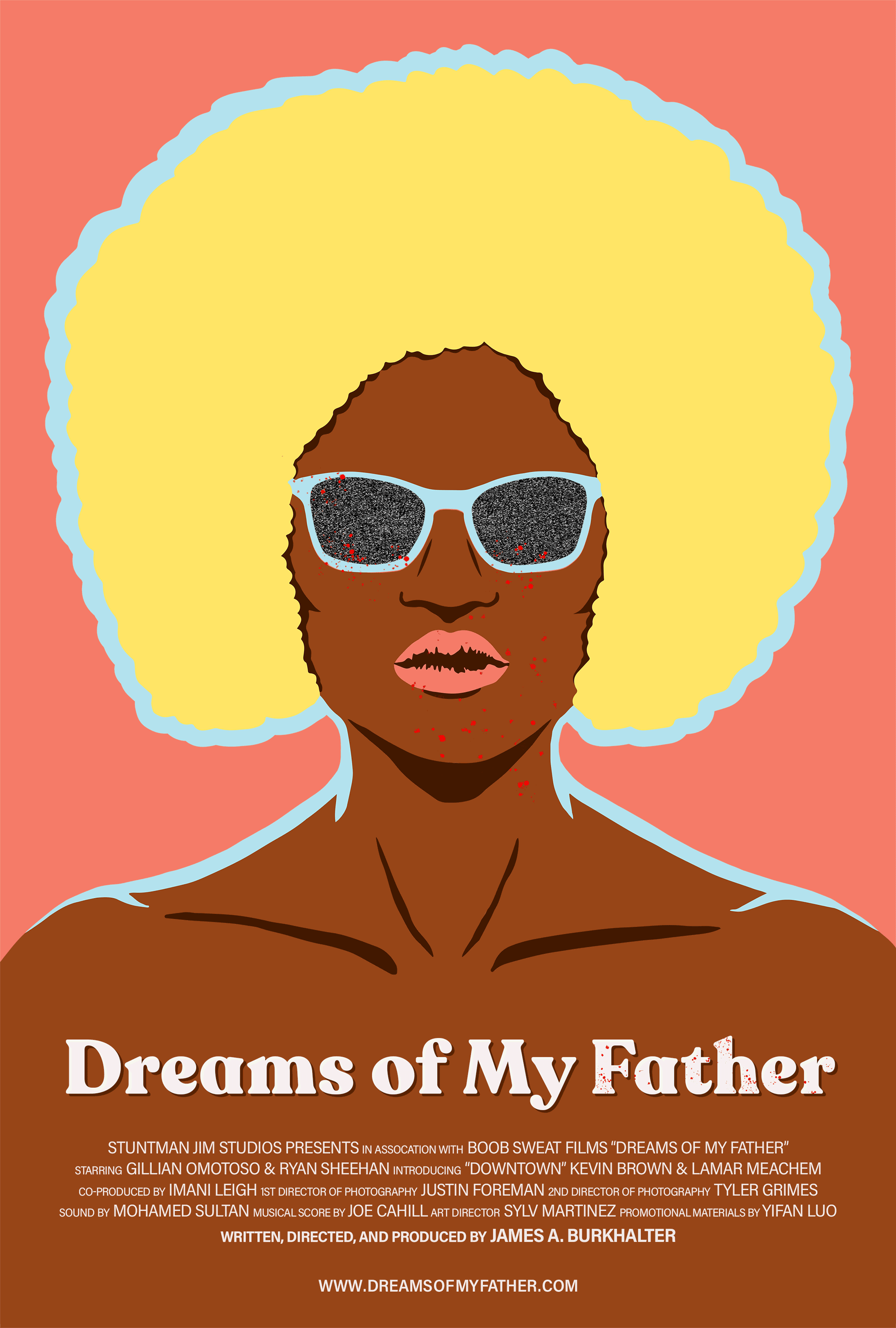
SYNOPSIS
En route to an audition, aspiring actress Leila stops at a motel and hooks up with one of the locals. After swallowing a weed edible, she is flooded with paranoia and insecurity about her physical appearance as a transwoman. To make matters worse, everywhere she turns she sees the apparition of her biggest tormentor. Will she summon the courage to vanquish the demons of her past once and for all?

DIRECTOR'S STATEMENT
To draw on the words of New Queer Cinema director Gregg Araki, my film, Dreams of My Father, is “not 100% autobiographical but it is 100% personal.” It employs horror and action movie tropes to channel the resentment and anger I harbored toward my father for decades.
After dodging mirrors and cameras for an entire year, I reached the breaking point where I surgically erased our striking family resemblance. In telling this deeply personal story, I want to challenge society’s concept of binary oppositions and explore the grey areas between good and evil, love and hate, masculinity and femininity, and reality and dreams.
In a subversion of conventional filmmaking’s heteronormative, patriarchal gaze, the male lead character is treated as the sexual object of desire. The film’s nontraditional narrative deliberately withholds information, challenging audiences to fill in the blanks and interpret the material in complex ways.

INCLUSIVITY STATEMENT
Going into this project, I drew a hard line: I was committed to casting a transwoman in the trans lead role. As a gay male viewer, I’ve always been frustrated with the gay-for-pay phenomenon, in which straight actors are cast in roles written for queer people. More often than not, films made about us are not made for our enjoyment. And that needs to change. That’s why I’m a filmmaker today.
I want to spread a message of inclusivity to future generations. If the success of trans-inclusive productions such as Tangerine and Pose are any indication, audiences respond favorably to authenticity and vulnerability.

INTENDED AUDIENCE STATEMENT
Lovingly created for the Queer community, first and foremost, this film centers on the universal fear of becoming one’s parents. Coming out to parents and family, while more accepted today, is not far removed from a time when it meant saying goodbye to loved ones forever.
Leila, the story’s protagonist, faces just these fears. Intentionally written for a black transgender woman—the planet’s most vulnerable and targeted group—she is a character Queer and BIPOC viewers will enjoy seeing themselves in and whose struggle even cisgender viewers will be able to empathize with. Leila’s strength and defiance in the face of adversity will hopefully empower survivors of physical and psychological abuse.
